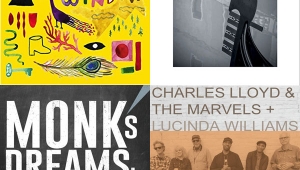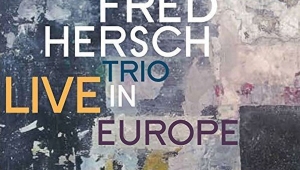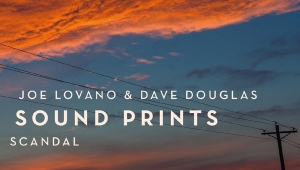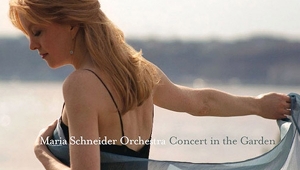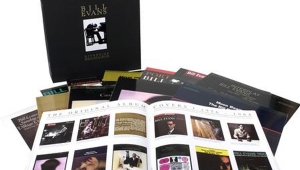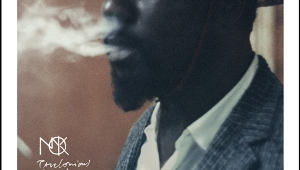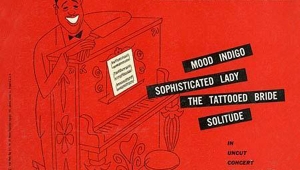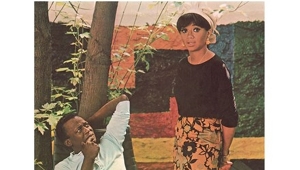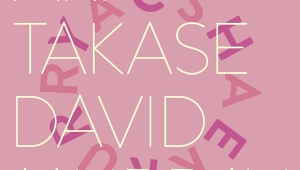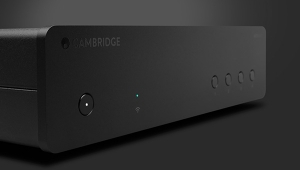| Columns Retired Columns & Blogs |
"Man!"
It was no surprise that Charlie Haden and Kenny Barron struck such rich chords Tuesday night at the Blue Note, the first in a series of duet concerts that Haden, one of the great bass players in jazz, is headlining—six nights, four different pianists—at the club in Greenwich Village. Haden is best known as the bassist in Ornette Coleman’s original quartet, but it’s a mistake to tag him as a “free jazz” musician, in the usual sense. Above all, Haden is a romantic—he loves ballads and waltzes, he plucks a thick, juicy tone—and Barron is a lush balladeer. A few moments in the opening set didn’t quite click (maybe because Haden, now 70 but still youthful, recently had a hernia operation), but most of it did, Barron cruising triplets on the keyboard, Haden responding with undisguised but tightly harnessed emotion. The duet recording he and Barron made several years ago, Night and the City, seems a simple pleasantry if you play it in the background, but listen closely, there’s so much intricacy between the two—and yet, at every level, the music above all delights and charms.
But tonight I was startled by how gracefully Haden’s duets with Ethan Iverson came off. Iverson is the pianist with The Bad Plus; he’s also a walking encyclopedia of music (classical as well as jazz) and a virtuosic musician. His playing tends toward the cerebral, even the steely; it would be, in any case, a stretch to call it “emotional.” And yet he and Haden meshed wondrously—not in the way that clashing sensibilities can sometimes spark excitement, but rather in the way that any two stellar musicians mesh when they’re playing music that they love.
I’m not entirely sure how the wheels spun so smoothly. One reason must be that Iverson knows Haden’s music inside out; he has long declared Haden to be a major influence. He told me that when he was about 15, one of his first musical exercises was to transcribe a bass solo from Haden’s LP with Hampton Hawes (his first piano-bass duet recording). So Iverson knows what Haden wants in a pianist. But what accounted for Haden’s responsiveness? The answer, I think, could be seen in the second song of the late set, a cover of Ornette’s intense ballad, “Broken Shadows,” when Haden became so entranced by Iverson’s rhapsodic chords that he squeezed his eyes tight, shook his head in disbelief, muttered his favorite word (“Man!”), and plucked a few precisely chosen soulful notes as ballast.
This is, and always has been, the magic of Charlie Haden. He is essentially an instinctive bass player, and his instincts are infinitely supple. He was the ideal bassist for Ornette Coleman not because, like Ornette, he tended to eschew chord structures, but because he could respond and embellish any music thrown at him, whether or not it had chord structures. Thursday night, he plays duets with Paul Bley, the first pianist that he played with when he came to Los Angeles in the mid-‘50s (Bley was the leader of a quintet that, sans Bley, became the Ornette Coleman quartet). Friday through Sunday, he plays with Brad Mehldau. Try to go. Or listen to some of his duet records. At least for a while, focus on him, not the pianist. He plays the tonic of a chord, then a hint of a scale, then he might pluck the same note repeatedly through a chord change just to hear how the overtones blend, then a few notes that float free of structure, that just evoke the mood of the song. He does all this seamlessly. You can’t feel the gears shift, unless he wants you to feel it, for some effect; he traces swirls in directions that are unpredictable but, once they’re laid down, seem inevitable; and he never loses track of time. This is the meaning of musical mastery.
- Log in or register to post comments
